Description
ABSTRACT
Share Buyback by Companies in Nigeria: Time to Relax the Rules
Dr. George Nwangwu*
A company is only allowed to buy back its shares under very stringent conditions that make it extremely difficult for it to achieve the repurchase of the shares. The historical argument for this is that the law tries to protect debt providers who are not part of the management or owners of the company from a deliberate dilution of the capital of the company as a consequence of such share buyback. This paper examines the justification for this position and considers whether in the light of developments in the area of corporate finance, particularly capital raising and structuring, these restrictions still serve any progressive purpose.
Keywords: Companies, Shares, Buyback, Corporate Finance
INTRODUCTION
A company may raise capital principally through debt or equity. When a company decides to raise equity,1 the usual method is by is by issuing common(ordinary) shares to prospective investors. It is these shares that serve as the measure of ownership of the investor in the company and also guarantees the investor certain rights in the company, most notably the rights to dividends and to vote on important decisions. Therefore, when the company issues this class of shares, it is effectively selling a portion of the company along with a bundle of rights to the investor. The law is particularly interested in how ownership rights acquired in this manner is exercised, especially vis-a-vis other stakeholders. One of these important stakeholders within in the company are debt providers. They have provided loans and other forms of credit to the company with the assurance that they would recover their monies from the company at a future date. This assurance would amount to nothing if the managers of the company, in connivance with the shareholders, were to willfully dissipate the trading capital of the company, of which the debt providers rely upon for recovering their investment in the company. It is principally in the protection of this class of shareholders that the law places restrictions on how equity holders may deal with their shares.
Generally, there is little or no restriction on the company concerning the nature or quantity of shares it wishes to sell or even a requirement to diligently proffer reasons for issuing these shares. However, the situation is remarkably different where the company tries to buy these issued shares back from the investor at a future date. The company is immediately confronted with a number of restrictions which either bars or makes it extremely difficult for it to achieve the repurchase of the shares. The primary reason for this, as stated above, is that the law tries to protect the debt providers who are not part of the management or owners of the company from a deliberate dilution of the capital of the company as a consequence of such share buyback.
* Ph.D., BL. Managing Partner, Ratio Legal Practitioners. Dr. Nwangwu was a lecturer in the Department of Commercial Law, University of Lagos, and taught International Commercial Arbitration in the University of London (External Programme). He was also a Special Adviser to the former Coordinating Minister of the Economy and Hon. Minister of Finance on Infrastructure Finance and PPPs.
- Equity in this sense refers to ordinary shares or common stock.

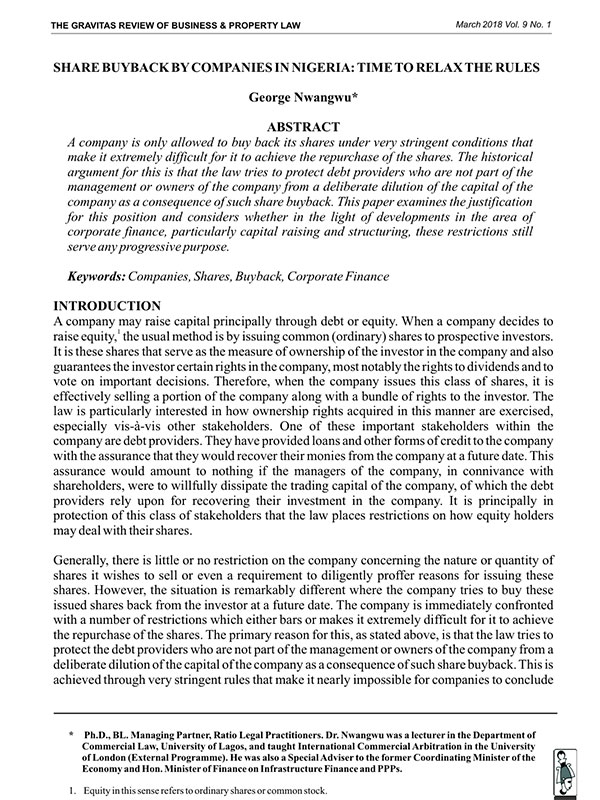
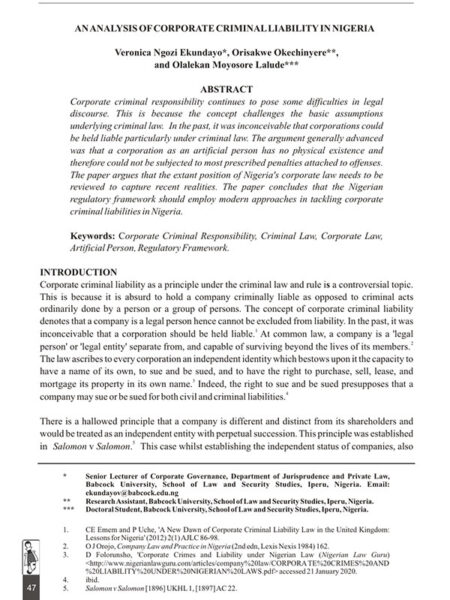
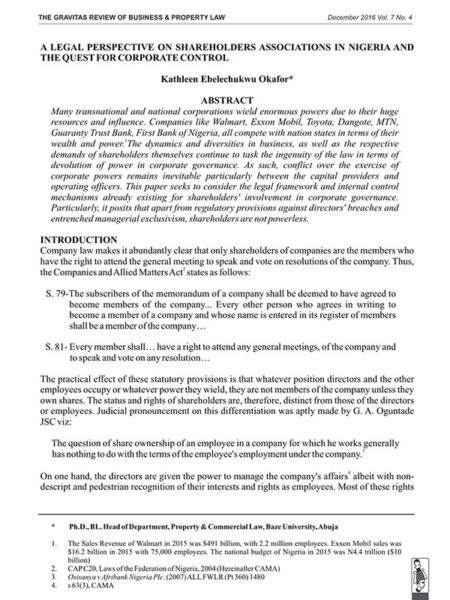
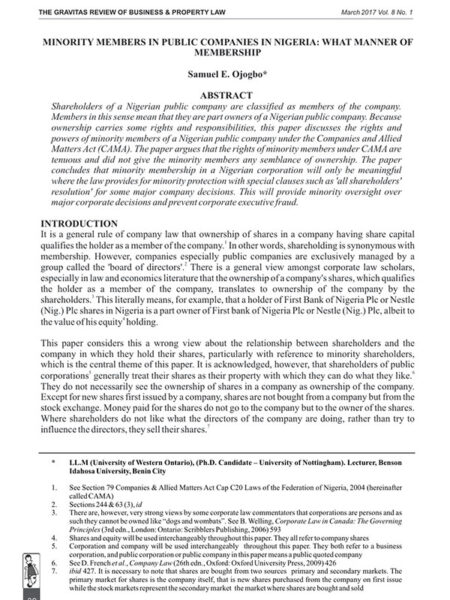
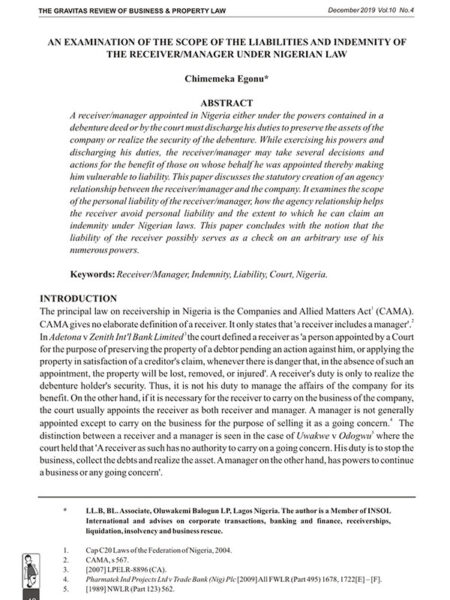


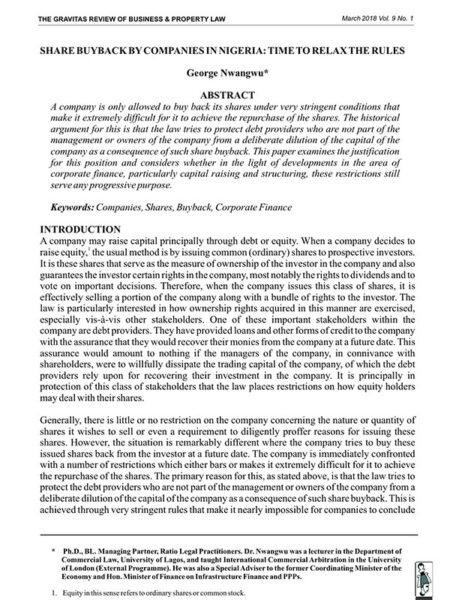
Reviews
There are no reviews yet.